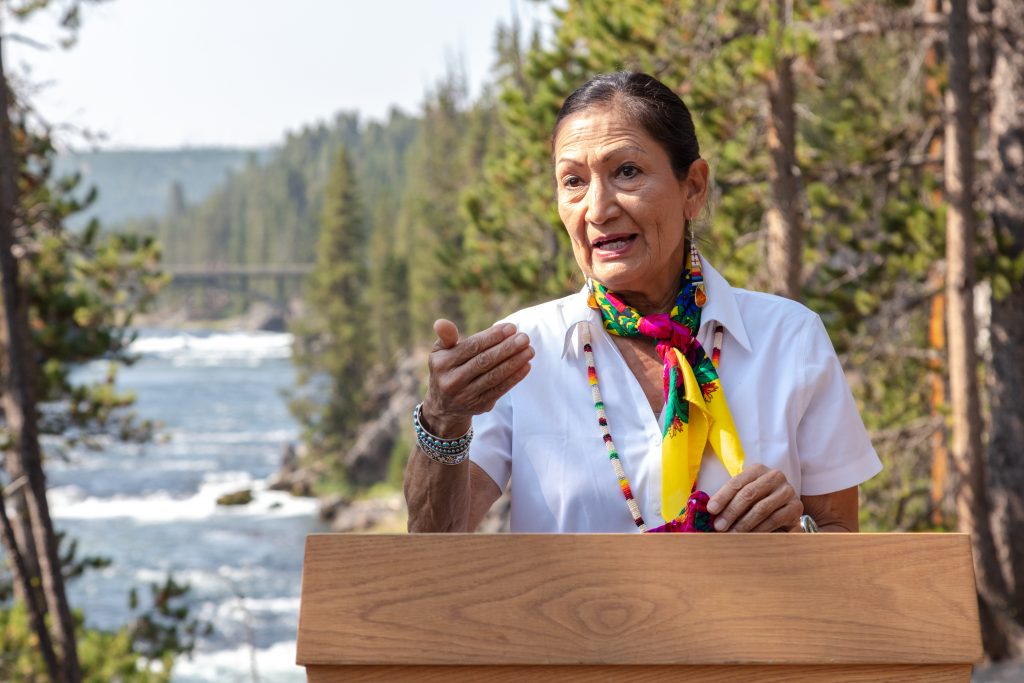28 Wisconsin Sites Renamed to Remove Indigenous Slur
US Department of Interior renaming geographic features nationwide.

DOI Secretary Deb Haaland. (Public Domain).
The U.S. Department of the Interior released the new names of nearly 650 sites nationwide to remove a derogatory slur for Indigenous women from federal use. These include 28 lakes, valleys and other geographic features in Wisconsin — a change many believe is long overdue.
“I thought, ‘It’s about time,'” said Bobbi Webster, public relations director for the Oneida Nation. “And I thought it takes (a) Native or an Indigenous woman to make that move to really push it when she’s in a position of the authority to do that,” referring to Interior Secretary Deb Haaland.
In November, Haaland, the nation’s first Native American cabinet secretary, signed a federal order declaring the term derogatory. That launched a nearly year-long effort including the creation of a federal task force to hear name change recommendations.
Webster applauded the change but said it will take time and resources for people to start using the new names.
“I don’t think there’s going to be much of a change immediately, but in terms of looking to the future, I would hope that we begin to raise a new generation of people — citizens in Wisconsin — that care more deeply about one another,” she said.
Webster continued: “Mutual respect is something that we really have to lay as a foundation in the state in our school system as well as in our home socially and educationally.”
“I was very happy about it,” Goodwill, who is a tribal liaison for the Wisconsin Department of Natural Resources, said. “They are permanent changes with the federal government publishing this list.”
But Goodwill said it will take time to change signage.
“It won’t happen overnight. But the example that happened in the past is when the s-word lake in Oneida County was changed to Amber Lake. And then eventually the roads around the lake were changed,” she said.
That push to rename Amber Lake in Vilas and Oneida counties was extensive. John D. Johnson Sr., president of the Lac du Flambeau band of Lake Superior Chippewa, was one of the people campaigning for change.
“We love our people, we take care of our people here, and we respect our women a lot. And this is why we push for (those) name changes because of the respect that we have for women,” he said.
With the changes, Johnson Sr. hopes to expand tribal education in Wisconsin.
This isn’t the first time the federal government has removed derogatory terms from federal use. The Interior Department also identified and renamed pejorative terms for African Americans in 1962 and Japanese people in 1974.
In order to continue the conversation surrounding site names, Haaland created a federal advisory committee to hear public input on other derogatory names still being used.
28 sites in Wisconsin renamed to remove Indigenous derogatory slur was originally published by Wisconsin Public Radio





















